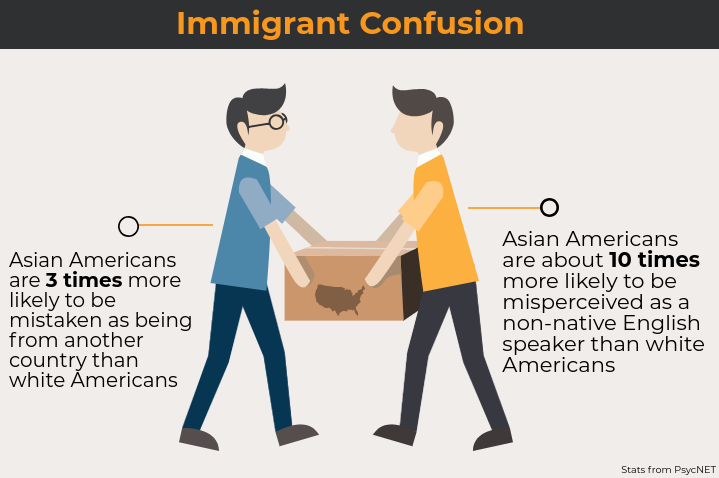“Where are you really from?”
Stop labeling Asian-Americans as foreigners
December 12, 2018
“Where are you from?”
“Bethesda, Maryland.”
“No, but where are you really from?”
As a racial minority, I often face this question. Although I was born in Maryland and have lived here all my life, many people don’t believe my response. Instead, they keep repeating the question, with increasing emphasis on the word “really,” to figure out which “exotic” country I come from.
Although asking someone where they’re from may seem harmless, it suggests minorities don’t belong and can’t possibly be American because of their appearance. Asian-Americans who have lived in this country for many generations are often still treated as foreigners.
A 2005 study in the Journal of Personality and Social Psychology found that 18 percent of Asian-Americans were mistaken as being from another country, whereas only 6 percent of white Americans reported being mislabeled this way.
The same study also reported that identity denial, or when others don’t recognize an individual as a member of a certain group, is common within Asian-American communities because they’re perceived as less American than white Americans. Being asked the question “Where are you from?” serves as a constant reminder of the identity denial that almost all Asian-Americans face daily.
Once, when I was in a bike shop in California with my family, an Asian man behind the counter asked my dad where he was from. My dad answered that he was from Thailand, and asked the worker the same question in an attempt to make conversation. Ironically, he responded in a sassy tone, “California. Born and raised.” I was shocked that some people feel compelled to ask this question even when they would be offended by it themselves.
These microaggressions against Asian Americans are extremely common. Michael Luo, a deputy Metro editor at the New York Times, wrote in a 2016 open letter about his shock at a well-dressed woman in the Upper East Side yelling at him to go back to China. Asian-Americans can be successful and contribute to their community, and still be considered outsiders.
A specific skin tone or hair color shouldn’t define what it means to look American. We’re a country made up of descendants of immigrants from all over the world, and minorities should be seen as just as American as everyone else. So ask me again where I’m from?
I’m from Maryland. Born and raised.













Byron Ma • Dec 13, 2018 at 5:25 pm
I too, was born in this area and grew up largely in this community. And I too, when asked “where are you from?”, anticipate the inevitable follow up question.
Yet I must disagree with you because I do not believe that these “microaggressions” are discriminatory.
At least from my experience, those who ask me this question are just genuinely curious to know where my family came from. And there’s nothing wrong with that. I do not feel uncomfortable telling them that my parents are from China. Those intolerant to ethnic minorities, typically, won’t even bother asking where you’re from.
I also think it’s perfectly reasonable that the percentage of misidentified Asian Americans is higher than that of white Americans. America is mostly white, and white people in America are mostly American. Guessing that the next white person you meet in Bethesda is American is a pretty safe one; the statistic you reference is to be expected and not out of the ordinary.
While we all long to belong to a community, whether someone is labeled an “American” really shouldn’t be the determining factor. As you said, America is truly a collection of immigrants, old or new, and whether you look or sound American shouldn’t affect how you are treated. If a minority is treated unfairly on the simple premise of their race, then I think that speaks more towards intolerance for minorities and less towards the importance of being called “American”.